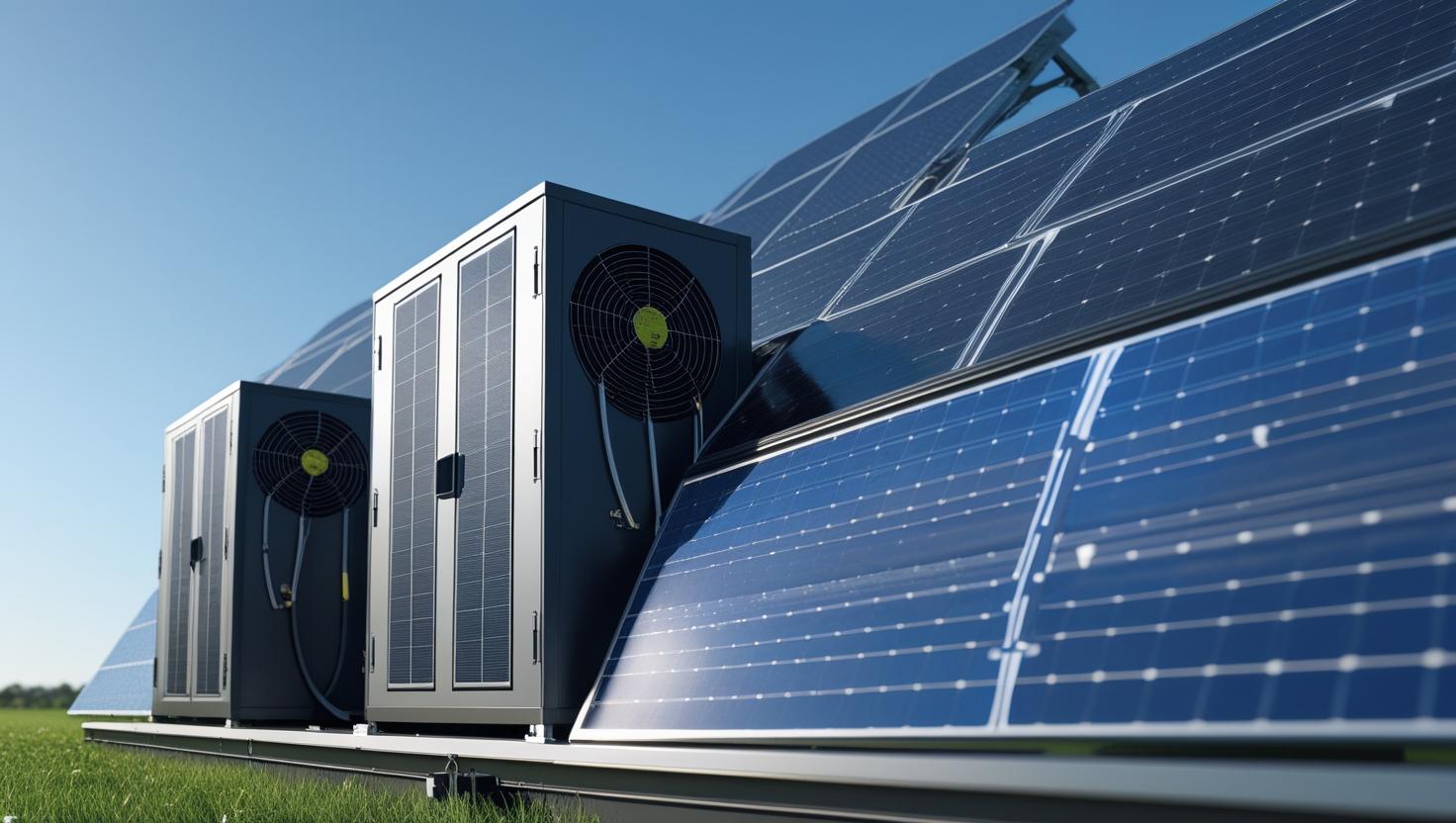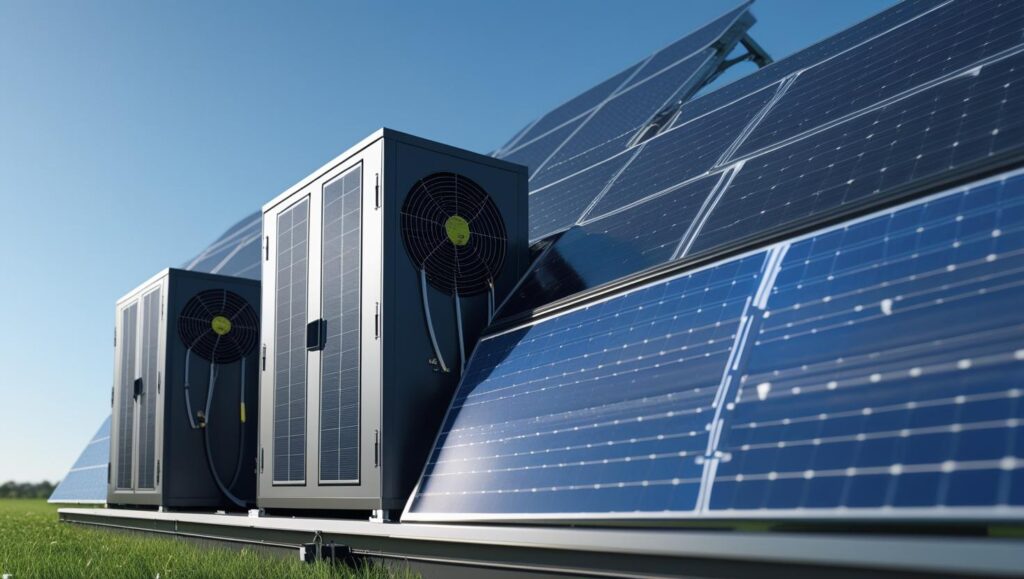How to Choose a Solar Power Generator – Buyer’s Guide (2025)

Learn how to choose the best solar power generator for your needs. Covers size, wattage, cost, charging time, and what appliances it can run.
Switching to a solar power generator is one of the smartest moves for homeowners, campers, and anyone seeking backup energy without the noise and fumes of diesel. But how do you know which solar generator is right for you?
In this guide, we’ll break down exactly what to look for, how to size your system, and what you can run on different capacities — so you get the perfect match for your power needs.
Choose a solar power generator

Solar Power Generator
You need to consider your power needs, including the wattage of the devices you want to run and how long you need them to run, the generator’s capacity, portability, and charging capabilities. Prioritize reputable brands and compare price versus performance to find a suitable model.
Detailed breakdown is here:
1. Assess Your Power Needs:
- Identify Appliances and Running Time: Determine which devices you need to power and for how long. Consider both running watts and starting watts (especially for appliances with motors like refrigerators).
- Calculate Total Wattage: Add up the wattage of all devices you plan to run simultaneously. Factor in the starting wattage for appliances that require a surge of power to start.
- Choose the Right Capacity: Select a solar generator with a battery capacity (measured in watt-hours or kWh) that can handle your calculated wattage needs for the desired duration.
2. Evaluate Generator Features:
- Inverter Specs: Understand the inverter’s continuous output (how much power it can provide continuously) and surge capacity (how much it can handle momentarily to start appliances).
- Battery Type: Lithium-ion and lithium iron phosphate batteries are common. Lithium iron phosphate batteries generally offer longer lifespans and better heat management.
- Portability and Durability: If you need a portable generator for camping or outdoor use, consider its weight, size, and ruggedness.
- Charging Capabilities: Consider how you’ll charge the generator (solar, AC outlet, or car charging). Evaluate the charging speed and whether the generator allows for adjustable charging speeds.
- Expandability: Some solar generators allow you to expand their capacity by adding more batteries.
- Additional Features: Look for features like built-in displays, Bluetooth or Wi-Fi connectivity for monitoring, and pass-through charging (charging the generator while simultaneously powering devices).
3. Research and Compare:
- Reputable Brands: Choose generators from well-known and reputable brands to ensure quality and reliability. Avoid lesser-known brands that may offer subpar products.
- Price vs. Performance: Compare the features and performance of different models while considering your budget.
- Read Reviews: Look for online reviews from other users to get insights into real-world performance and reliability.
Why Choose a Solar Power Generator?
Unlike diesel or gas-powered units, solar generators use clean, renewable energy. This means:
- No fuel costs – Sunlight is free.
- Quiet operation – No disturbing engine noise.
- Low maintenance – Fewer moving parts to service.
- Eco-friendly – Zero greenhouse gas emissions during operation.
Whether you’re running a refrigerator, powering a campsite, or backing up your home, choosing the right solar generator requires careful consideration of size, wattage, and battery capacity.
What to Look for When Buying a Solar Power Generator
Before you buy, assess these core factors:
- Battery Capacity (Wh or Ah) – Determines how long the generator can power devices.
- Inverter Size (W) – The maximum power output at one time.
- Charging Options – Solar panels, wall charging, or car charging.
- Portability – Weight and handle design for easy transport.
- Expandability – Ability to add more solar panels or batteries.
How to Determine the Right Size Solar Generator
Calculate Your Total Wattage Needs
Make a list of the appliances you want to run and their wattage. For example:
| Appliance | Average Wattage | Running Time | Total Wh Needed |
| Refrigerator | 150W | 8 hrs/day | 1,200 Wh |
| Laptop | 60W | 4 hrs/day | 240 Wh |
| LED Lights (5) | 50W | 5 hrs/day | 250 Wh |
Add these up to find your daily power need.
Match Generator to Need
If your total daily usage is 2,500 Wh, you’ll need at least that much battery capacity (plus a safety buffer of 20–30%).
Quick References:
- 1000W Solar Generator – Laptops, lights, small fans.
- 2000W Solar Generator – Refrigerators, TVs, small power tools.
- 3000W Solar Generator – Larger appliances, AC units, backup for entire rooms.
What Size Solar Generator to Run Specific Appliances
- Run a Refrigerator – Minimum 1500–2000W with 1500–2000Wh battery.
- Run AC – 3000W or higher with high battery capacity.
- Run a Whole House – Needs 5000W+ and a scalable battery bank.
Charging Times – How Long Does a Solar Generator Take to Charge?
Charging time depends on solar panel wattage and sunlight hours:
| Battery Size | Panel Size | Sunlight Hours | ChargeTime |
| 1000Wh | 200W | 5 hrs/day | 5 days |
| 1000Wh | 500W | 5 hrs/day | 2 days |
| 2000Wh | 500W | 5 hrs/day | 4 days |
For faster charging, pair your generator with a higher-watt solar array or hybrid charging via a wall outlet.
How to Choose Solar Panel Wattage for Home Use
- Small Home – 300–500W solar panels for light usage.
- Medium Home – 1000–2000W solar setup for essential appliances.
- Large Home – 3000W+ solar capacity for whole-home backup.
Popular Sizes and Their Uses
| Generator Size | Runs | Best For |
| 300W | Phones, LED lights | Camping, hiking trips |
| 1000W | Laptop, TV, fans | Small apartments |
| 2000W | Fridge, tools | Emergency backup |
| 3000W | AC, multiple appliances | Whole-home backup |
Cost Guide
| Size (W) | Avg. Price (USD) | What It Can Run |
| 300W | $250–$400 | Lights, small devices |
| 1000W | $800–$1,500 | Laptop, TV, fridge |
| 2000W | $1,800–$3,000 | Multiple appliances |
| 3000W+ | $3,500+ | Whole-home systems |
Is It Worth Getting a Solar Generator?
Yes, if:
- You want quiet, clean energy without fuel costs.
- You live in an area with frequent power outages.
- You need portable backup power for trips or emergencies.
Not ideal, if:
- You have extremely high energy needs (e.g., heavy industry).
- Your region gets very little sunlight year-round.
Final Buying Tips
- List all appliances you plan to run.
- Calculate total daily watt-hours.
- Add a 20–30% safety margin to your generator size.
- Match solar panel capacity for efficient charging.
- Choose a reputable brand with warranty support.
Conclusion – Choosing the Right Solar Generator
The best solar generator for you depends on your specific needs, budget, and location.
If you’re running only essentials during outages, a 1000–2000W model is perfect.
For whole-home backup, aim for 3000W+ with expandable batteries.
By using the steps above, you’ll know exactly what size, wattage, and panel setup you need — and avoid wasting money on an undersized or overpriced system.
FAQs – Solar Generator Buying Guide
1,000–2,000W generator with at least 1,500Wh capacity.
At least 3,000W with a large battery bank.
At least 3,000W with a large battery bank.
Only very large systems (5,000W+) or multiple units.
Yes—for quiet, eco-friendly, and low-maintenance backup power.
